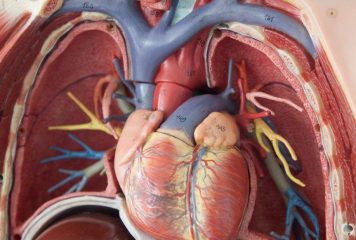These are interesting times for those of us practicing pulmonary medicine. Our specialty has evolved with new technologies and practices. The emergence of interventional pulmonology as a distinct subspecialty area with unique needs, treatments and practice patterns is one example of that evolution. ABIM is evolving along with us, looking for ways to improve the initial certification and Maintenance of Certification (MOC) programs and better meet the needs of internists and subspecialists.
The ABIM Pulmonary Disease Board is formally considering the recognition of interventional pulmonology as a subspecialty of pulmonary disease with its own distinct certificate. We invite your input on this proposal to help guide our considerations along with feedback from the broader stakeholder community. The public comment period will close on May 1, 2025.
A potential new certificate and recognized subspecialty has far-reaching implications for many people. It means creating new assessments, eligibility policies and program infrastructure specific to interventional pulmonology. ABIM is taking steps to involve as many stakeholder voices as possible, including physicians, patients, medical professional societies and training programs, so that we can make a well-informed decision about this important matter. Please share your comments so your voice can be heard.
Background
The American Association for Bronchology and Interventional Pulmonology (AABIP) has offered a certification in interventional pulmonology since 2013, with its own certification exam and recertification process. They have requested to be included within the roster of disciplines recognized by the American Board of Medical Specialties, which oversees ABIM. In order to recognize a new ABIM discipline, evolving practice specialties must first show that they meet the criteria established in 2006 by the New and Emerging Disciplines in Internal Medicine (NEDIM-2) report. Specifically, AABIP has demonstrated that interventional pulmonology requires a unique body of knowledge, involves clinical practice distinct from the parent discipline (in this case, pulmonary medicine), has advanced research and scholarship by generating new knowledge, and has demonstrated social need and improvement of patient care. The interventional pulmonology practice includes complex technology or specific site-of-care learning to achieve competence, and attaining competence in the discipline requires direct supervision and at least 12 months of formal standardized training.
In May 2024, AABIP presented this information with other data to the Pulmonary Disease Board and asked the Specialty Board to begin the process of recognizing it as a new subspecialty area. After extensive discussion, the proposal received general support and the Pulmonary Disease Board voted to authorize ABIM to survey the pulmonary disease community’s opinion. The ABIM process for consideration of a new distinct discipline within a specialty was last invoked in 2018, resulting in the creation of the Neurocritical Care Certification Program as a distinct discipline within Critical Care Medicine.
AABIP’s Perspective
We asked Carla Lamb, MD, President of AABIP, and Septimiu Murgu, MD, Immediate Past President, to share why they believe it is important for ABIM to offer certification in interventional pulmonology:
“AABIP’s mission is to make a positive difference in the lives of patients with thoracic disorders,” said Dr. Lamb. “To do that, we need empathy and credibility, which is a two-step process. First, we established competence that over the years has gained people’s trust. We did that through standardized educational training programs (IP fellowships) and certification exams (AABIP-based Board examinations). Second, we have sought to gain recognition and approval for that competence from regulatory bodies. For IP training, we have gained recognition and approval by the Accreditation Council for Graduate Medical Education (ACGME), demonstrating that there is a distinct body of knowledge and skills that require additional training in fellowship. We are now seeking the same from the ABIM. We believe ABIM has the testing expertise, resources and the rigorous methodology to implement such a certification as research suggests that participation in a continuous certification program has been shown to improve patient care and enhance knowledge.”
Dr. Murgu added, “AABIP believes that Board Certification of interventional pulmonology (IP) physicians is a responsibility of our subspecialty. Since the primary constituency for certification is the public, we believe certification in IP represents a professional demonstration of public accountability and transparency. As individual state licensing bodies and institutional credentialing committees do not extensively regulate and measure physicians’ claims of expertise in IP, board certification in IP is needed to independently verify that physicians have the necessary knowledge and skills to practice within our field. This can be done by ABIM, an organization with extensive expertise in developing and implementing assessments.”
Fellowship training in interventional pulmonology is already accredited by ACGME. This will not affect the vetting process or the decision of the Pulmonary Disease Board, but it may ultimately affect the initial certification eligibility criteria.
What Happens Next
ABIM is gathering and assessing input from stakeholder groups across the discipline. In fall 2025, the Pulmonary Disease Board will consider all information before making a recommendation to the ABIM Council, which has oversight of program standards, policy and procedures that govern certification across the disciplines of internal medicine. If approved, the proposal will move to the Board of Directors for a final decision, expected to occur no sooner than spring 2026. ABIM must then seek approval from the American Board of Medical Specialties (ABMS) — which oversees ABIM and the 23 other ABMS Member Boards offering board certification — to administer the new program. Overall, this rigorous process—from first soliciting stakeholder input and following ABIM and ABMS policies, to the first time we offer an initial certification exam in the discipline—typically takes several years.
Who Would Be Eligible?
If the final proposal is approved, physicians certified in pulmonary disease who successfully complete a fellowship in interventional pulmonology accredited by the ACGME and who meet the requirements for subspecialty certification would be eligible to apply for the Subspecialty Certification Examination in Interventional Pulmonology and earn a unique certificate. Physicians certified in pulmonary disease who have been practicing interventional pulmonology without having completed an accredited fellowship program may also be eligible to apply, pending other eligibility criteria as yet to be determined.
Make Your Opinion Heard
Advances in the profession are informed and determined by physicians like you—we want to hear from you. Please share your comments with us and encourage your peers to do so as well by May 1, 2025. A random sample of physicians certified in pulmonary disease has been asked to complete a formal survey about this proposal that includes the same questions available to you through this blog. All of the comments received will be included as key components of stakeholder feedback.
Thank you for your time and consideration.
Lynn T. Tanoue, MD, MBA
Chair, Pulmonary Disease Board




